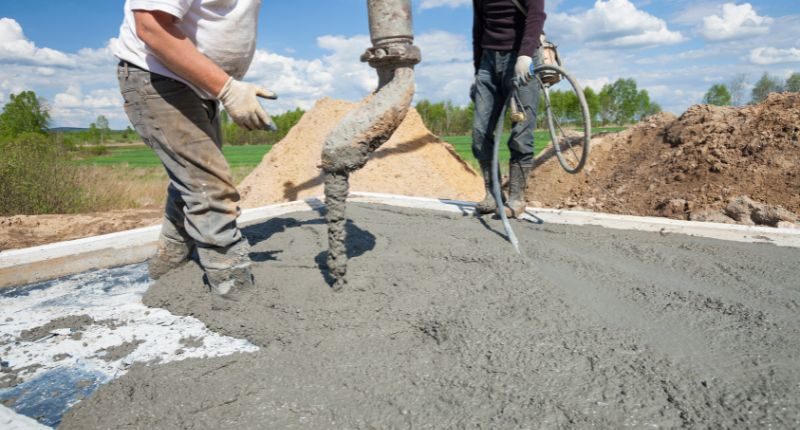Previously, we have spoken about the cost of concreting, primarily covering the cost of concrete per square metre.
But what about per cubic (m3) metre?
Concreters charge per cubic metre as before it sets and hardens, concrete is a liquid – although, more of a versatile one. Therefore working out the m3 is the same as its volume.
To work this out, multiply the height, length and width of the slab.
One cubic metre equates to 1,000 litres.
What variables can affect the price of concrete per m3?
Many factors can affect the pricing of concrete. These can include the time it takes to dig and level the area to accommodate the concrete. Drainage required is another, as is the ease of access.
If work is to be done on a busy road, traffic controllers may be needed, significantly increasing labour costs.
Concrete used for a driveway may cost more than a slab or walkway.
If older concrete needs to be removed, this cost needs to budgeted appropriately.
How much is the cost of concrete per m3?
In Australia, the average cost of concrete can vary from $200 to $300 per m3 (cubic metre).
However, this could cost as much as $350 for 40 MPa strength, which is commonly used for footings, pathways, securing posts, slabs and other high strength purposes.
On the other end of the spectrum, the cheapest variants can cost around $160 per cubic metre. Concrete per m3 typically costs more when purchased in smaller quantities.
A standard 20×20 slab would typically cost between $1,340 to $2,400.
A 12×12 square foot concrete slab would cost around $185 to $865 to be laid by a concreter. A 12 square metre concrete slab would cost around $600.
Costs can vary due to local prices differing. The type of concrete ordered, any additive or admixtures required can also make a difference. However, larger jobs or if you are required to regularly order concrete can also attract discounts.
Popular concreting jobs around the home include swimming pools, driveways, footpaths, footings, walls, slabs, kitchen benchtops and building foundations.

How to hire a professional concreter
Although many individuals are capable of laying a small slab themselves – there are plenty of guides, tutorials and videos online demonstrating this process – larger jobs would likely need the equipment and expertise of professional concretes.
Licenses are regulated on a state/territory basis. All bar Tasmania and the Northern Territory required a dedicated concreting or builder’s licence.
When is time to get quotes – for most jobs, three or thereabouts is recommended – there are a range of questions you should ask your concreter.
- What licenses(s) do you hold?
- Do you currently hold valid insurance?
- Can you provide a written quote to me?
- Do you have references?
Given the presence of social media, many concreters have a library of previous projects online. This would especially be a great idea if seeking a concreter for a more complex role.








